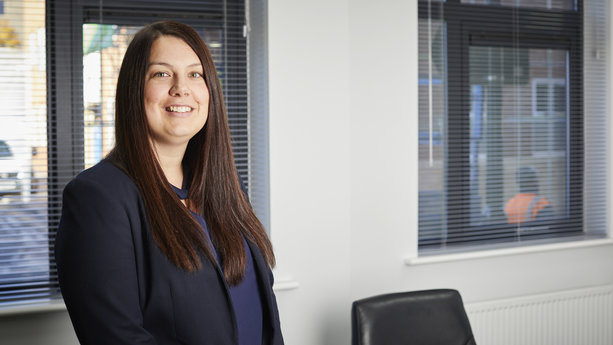Law firm launches Business Response Team to help organisations emerge from current pandemic crisis

Jennifer Sewell who is leading the Business Response Team at Rollits.
A MAJOR law firm has launched a dedicated support team to lead businesses to recovery from the impact of the coronavirus.
Rollits, which has offices in Hull and York, has brought together specialist lawyers with a range of skills and expertise with the aim of helping businesses to Get SET – survive, emerge and thrive – as they prepare for life after lockdown.
The firm’s Business Response Team has been working with clients to identify and address issues around workplace changes, contracts and other concerns. Jennifer Sewell, who is leading the team, said they are ready to help organisations as they plan for their future both in the short and long term, with agile decision making being crucial moving forward.
Jennifer said: “Our approach in setting up the Business Response Team is to encourage businesses to be proactive. There is no reason for employers to be fazed by the current situation and to bury their heads in the sand. We have a wide range of expertise within the firm which means that we can keep pace as the situation changes.”
The team is working to support businesses in areas such as dispute resolution, employment, health and safety, finance and restructuring, debt recovery, GDPR, property and corporate recovery and insolvency.
Jennifer said: “We appreciate that businesses will need different advice at different phases of recovery from the effects of the pandemic. The experience that our lawyers have means that we can work through current issues with our clients as well as helping them plan for the future.
“As an example, from the beginning of, and throughout the outbreak, our specialist employment lawyers have provided businesses with prompt employment advice. I am currently advising clients on issues in relation to “Covid-safe” workplaces and I have colleagues who are assisting clients with contracts that have not been or cannot now be fulfilled.
“The Get SET approach acknowledges that for a lot of businesses the priority was to weather the storm and focus on surviving the sudden impact of the pandemic. Now many clients are entering the emergence phase which presents new challenges. We are continuing to work alongside clients to find solutions for the new issues they are now facing.
“We’ve probably got some way to go before we get to the thrive stage and there will undoubtedly be more challenges along the way, but we have the expertise to tackle those issues as they arise. We also benefit from having a network of contacts who are professionals in other sectors such as accounting. We can draw on their expertise to complement the advice we already provide”
Rollits has had a positive response from other businesses which are eager to make their premises safe for staff going back to work and Jennifer expects to receive further enquiries as non-essential retailers prepare to reopen.
Jennifer said: “It’s still the case that people are working from home if they can. Those businesses whose employees cannot work from home, however, are looking for guidance about how they can keep their employees safe and give those returning to work the confidence to do so.”
The return to production of Willerby Ltd, the UK’s largest manufacturer of holiday homes and lodges, is one example of how to introduce new safety measures at a large manufacturing site,
Jennifer said: “Whilst we didn’t work on the project with Willerby, they are a client and an example of a business that has been proactive in investing a lot of time and thought into creating and implementing a system which will keep their workforce safe.”
When the lockdown was announced Willerby sent home all but around 15 per cent of the 1,000-strong workforce at its 90-acre site in Hull with the majority of those working from home if they were able. A dedicated team of 17 staff worked full time on risk assessments and new working methods throughout April to enable a phased return to work on 13 May after making extensive changes to the factory layout and production processes.
Sue Allan, Finance Director at Willerby, said: “We needed to think about touch points, how people interacted with each other and how to support a different way of working.
“After making some changes we walked the site and came up with more ideas. We made sure we considered everything and that gave us the confidence to bring limited numbers of people back.
“One of the things we felt was really important was to get people used to the new way of doing things before they even set foot on the site, and we have been in constant contact with advice online showing the new ways of working and making it familiar before they arrive.
“On their first day back all staff have an induction and everything is repeated. No one can go back to their normal work role until they have gone through a lot of training. We have daily reassessment meetings and weekly steering group meetings and everything has been really well received. People appreciate the fact that we have done a lot of work and they are not as fearful as they might have been. Nothing was rushed and we’ve had really good feedback.
“We have been very open and gone through presentations with competitors, suppliers and some of our customers because we recognise it is the right thing to do.”
























